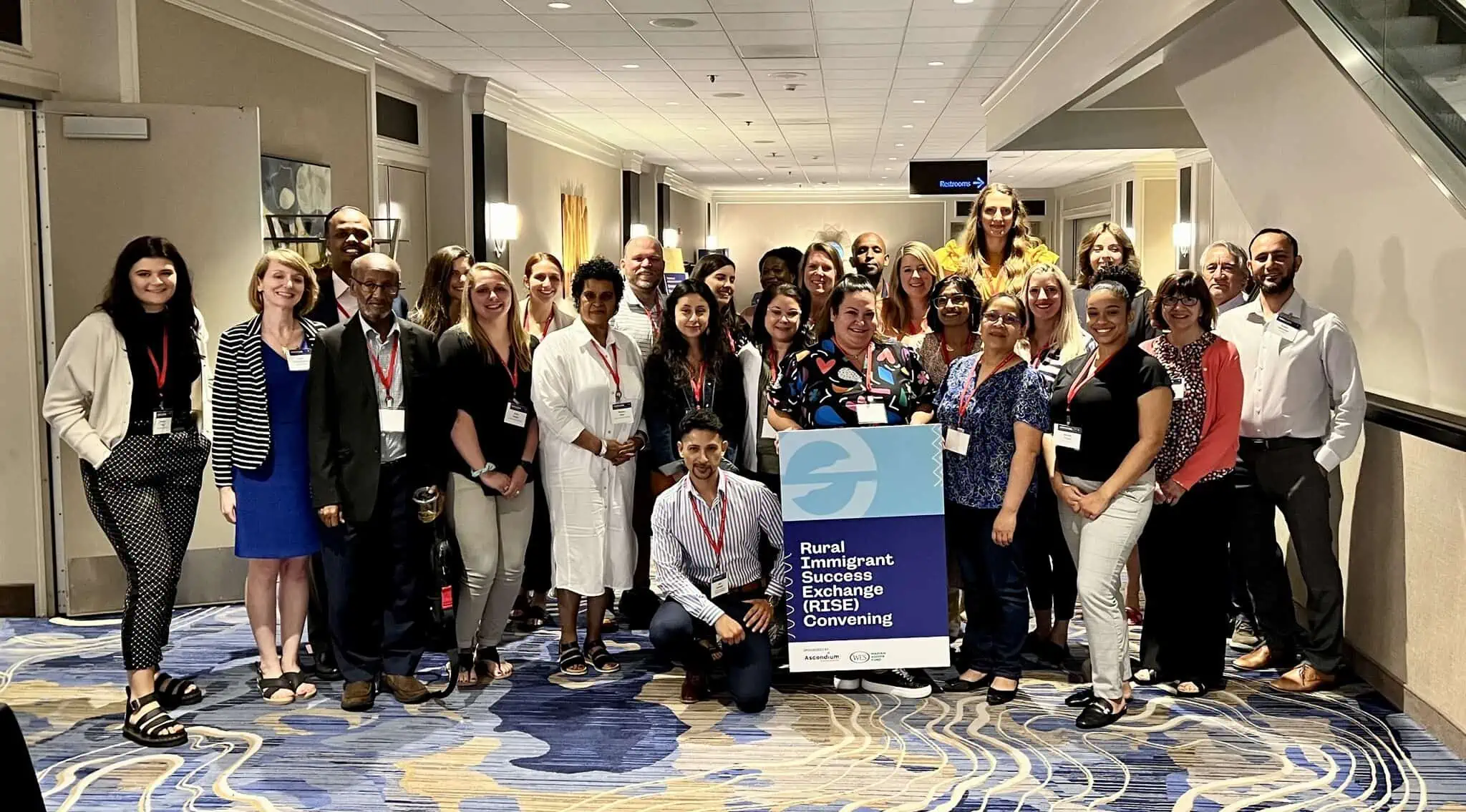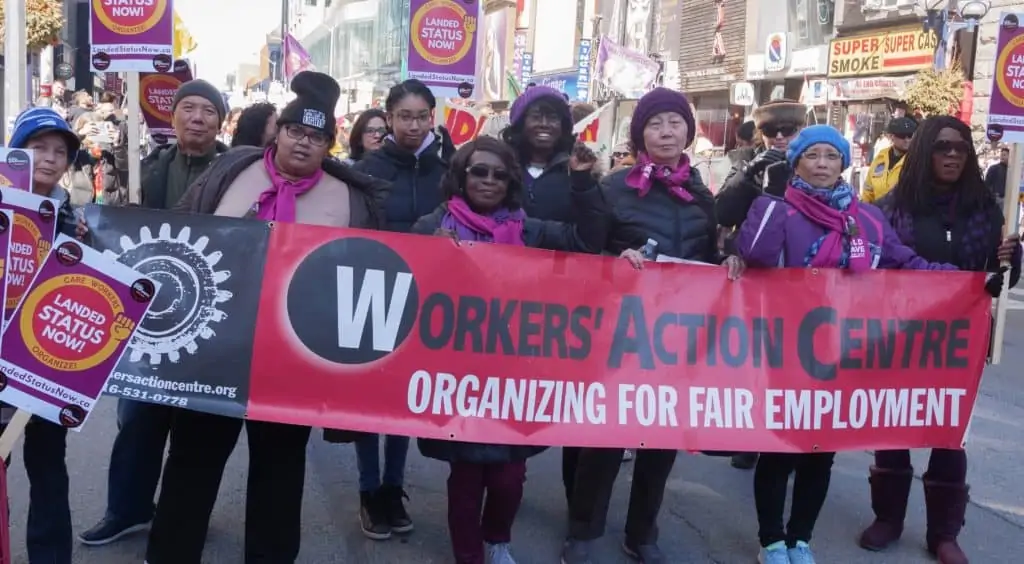Reflections on Convening Our Partners Supporting Rural Immigrants’ Success
Reflections by the WES Mariam Assefa Fund’s Lauren Crain, director of U.S. grantmaking and strategy, and Shevani Khatri, U.S. program associate
For immigrants and refugees to experience communities as welcoming, inclusive access to economic opportunity is critical. However, in rural communities, there are major gaps in awareness of how and why it is important to support immigrants in the workforce and less available funding to do so. Immigrants and refugees in these areas face barriers such as limited access to transportation, re-credentialing options, and training and upskilling opportunities. At the same time, they play a key role in revitalizing rural areas that face economic decline and an aging workforce.
Early this year, in partnership with JFF and Ascendium, the WES Mariam Assefa Fund launched the Rural Immigrant Success Exchange (RISE), a funding opportunity to advance economic inclusion in rural communities across the United States. Ten organizations (see the full list below) were each awarded $150,000 to support immigrant and refugee workforce development, education, and training.
In June, the RISE cohort gathered in New Orleans, Louisiana, ahead of JFF’s annual Horizons summit. The gathering provided a space for the RISE network members to connect with one another, have candid conversations about their wins and challenges, and share resources and ideas.

Below are a few key takeaways from our time together:
1. Establishing trust in communities is critical.
RISE partner organizations are all at different stages of supporting immigrants in rural communities. Some have been working in these areas for a long time, while others have primarily been in urban and suburban settings and are now expanding their programs. But across the board, the cohort agreed that establishing and sustaining trust within rural communities is a crucial step to inclusion.
For example, the Midstate Council on Occupational Safety and Health is actively working with a Spanish-speaking population. Its staff shared that some of its program participants were hesitant to join unions because of negative experiences they had faced with unions in their home countries. Staff members are taking steps to address this concern and foster greater transparency by, for example, providing testimonials from both current and alumni program participants.
The difficulty of creating trust in rural communities is often exacerbated when there are language barriers, which organizations are mitigating by prioritizing accessible program materials and content. Establishing trust is a long-term journey, and there is a shared understanding within the RISE cohort that it must be a key priority in order to create welcoming spaces.
2. This work cannot be done alone—an ecosystem of support is needed.
A consistent theme echoed throughout the convening was the importance of dependable partnerships. An ecosystem of support should include a range of organizations in a community, including resettlement agencies, houses of worship such as churches and mosques providing humanitarian support, and school districts, as well as federal, state, and city government.
RISE members said that this ecosystem approach is valuable as it encourages resource and information sharing. The Industrial Commons, for example, supports the rural Appalachian community by working alongside a web of partners, including a consortium of textile manufacturers in the region, local community colleges, and the public school system. Bonds are strengthened through this approach, and immigrants living in rural areas are more inclined to trust organizations that are making a concerted effort to develop community ties.
3. We need to increase the visibility of rural communities and the opportunities there.
A concern that resonated with many is the challenge of getting the attention and support needed to effect real change. In local and state policy conversations, urban and suburban areas are often the communities that receive the most attention. Organizations in rural areas want to increase their visibility and break out of isolation.
Lack of visibility is often compounded by the legal and access barriers that immigrant job seekers encounter in rural areas. RISE partners are starting to recommend and share best practices for lobbying to lessen these barriers and pursue substantial policy change.
Despite these challenges, the sense of camaraderie and solidarity among those in the group was apparent. Partner convenings like this one not only create a space to share resources but offer the opportunity to form meaningful, intentional relationships with organizations working toward similar goals.
Each RISE partner organization is supporting immigrants and refugees in rural communities in different ways. We know there is immense value in creating ecosystems of support, not just in the specific communities but across them. We’re excited to continue to bring this group together and foster the knowledge sharing that is so critical to this work.
Meet the 10 organizations of the RISE cohort:
- African Economic Development Solutions – Minnesota
- Career Pathways at Lane Community College – Oregon
- Central Valley Immigrant Integration Collaborative – California
- Comunidad Maya Pixan Ixim – Nebraska
- Culturingua – Texas
- Midstate Council on Occupational Safety and Health – New York
- New Vision Foundation – Minnesota
- The Industrial Commons – North Carolina
- International Medical Graduates Academy – Washington
- World Relief Quad Cities – Illinois





